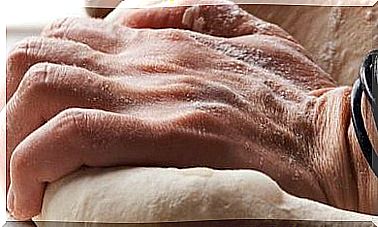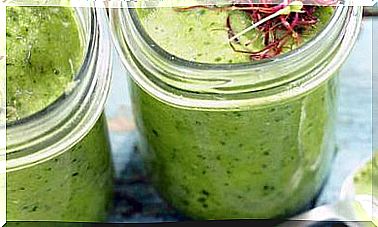Should I Eat Gluten? Or Not?
Why is this protein causing so much debate? The controversy about gluten is still open, but there are more and more followers to follow a gluten-free diet.

For starters, what is gluten? Gluten is a molecule found mainly in wheat, but also in rye, barley, and spelled. So, a priori, it seems most harmless and natural.
What is gluten?
The problem is that, in the early 60s, gluten was hybridized to increase resistance and thus the production of these cereals. With this came many more varieties of wheat, some with greater elasticity than others, which made some foods more pleasant and tasty. Like bread, which as it rises higher in its fermentation has become fluffier.
But from what we’ve learned so far, when we start to interfere with nature and over-process food, things can get out of hand …
The gluten molecule has increased in size at the cellular level
The larger the molecule, the more difficult it is to digest. It requires more gastric acid, more pancreatic enzymes, and more enzymes from the small intestine. This explains why some of us have a swollen belly, as if we had swallowed a balloon, after ingesting gluten.
All the secreted gastric juices are not enough to break down the gluten molecule, so our digestive system must work even more causing stress to our body, which translates into inflammation.
Gluten stimulates zonulin, a protein that increases intestinal permeability
The zonulin opens the pores of the intestinal walls allowing bacteria and food there sneaking that have not been sufficiently digested. When this happens, we provoke an adverse reaction towards us within our body. If we do not chew our food well and our gut is permeable, more molecules of food that are not fully digested can pass into the blood.
Repeated exposure to gluten may have already damaged your intestines
If you have been eating refined flours four times a day for the last 15 years (easy: breakfast cereals, mini sandwich for mid-morning, a little pasta for lunch, some cookies for a snack or a toast for dinner), you will surely have the permeability of your intestinal walls altered, causing a greater predisposition to suffer an immune response against food.
Perhaps you will see it clearer with another example. Imagine drinking fizzy drinks four times a day for 15 years. What is the risk of suffering from diabetes? If the rest of your diet is clean, you may never have diabetes, although by probability, the vast majority of people would fall ill.
Gluten hypersensitivity
These very stressed
Many of us live in cities where the frenetic pace is constant and the contact with nature is almost nil. Stress uses the protein glutamine, which, among other things, is responsible for keeping the pores of the intestinal walls at their proper size.
The message here is clear, the more stressed you are, the more likely it is that consuming gluten will give you gastrointestinal upset. This is why many people, when they are on vacation and eat “worse” than when they are at home, do not feel discomfort, they “like” everything.
You have cravings for cookies, bread, and pasta
This is a not-so-obvious symptom that a gluten hypersensitivity has developed but can also contribute. When we have damaged intestinal walls, we interfere with the production of serotonin, also known as the “happiness hormone”, since 90% of this is produced in our intestines. The lower the serotonin production, the more cravings we develop.
Your intestinal flora is out of balance
The intestinal flora can be your salvation or your enemy. If we have imbalances with pathogenic batteries (yeasts or parasites), these will feed on the gluten molecules that have not been digested, and will use them as food to multiply. They also ferment them and this is what causes our belly to swell.
If your intestinal flora is in harmony (flowers vs. weeds), then gluten will not alter your gastrointestinal health too much . Pathogenic bacteria also produce toxins that will make your gut more leaky.
So, should you eat gluten?
Don’t eat gluten if …
- You are celiac
- You have other autoimmune diseases (Hashimoto, diabetes 1, lupus …)
- Your belly swells after eating gluten
- You are very stressed
- If you have strong mood swings (it is related to states of depression)
You can eat gluten if …
- You consume it occasionally and without abusing
- You chew your food very well and / or take enzyme supplements, probiotics and glutamine (it will be preferable to eliminate it and not have to take supplementation just for it)
- You are not celiac or do not suffer from any autoimmune disease
I’m sure the gluten debate will continue, because not everyone has been tested for intestinal hyper-permeability, microflora composition, or has stopped eating gluten for more than 5 weeks in a row and has been able to experience changes.
Each of us is in a different position according to their conditions and experiences lived in this regard. But with this article I just want to bring more points of view on the subject to the table.
Bibliography
Randomized clinical trial: gluten may cause depression in subjects with non-coeliac gluten sensitivity – an exploratory clinical study.
The structure and properties of gluten: anelastic protein from wheat grain. The Royal Society.
Zonulin, regulation of tight junctions, and autoimmune diseases. Annals of the New York Academy of Sciences. Alimentary Pharmacology & Therapeutics









